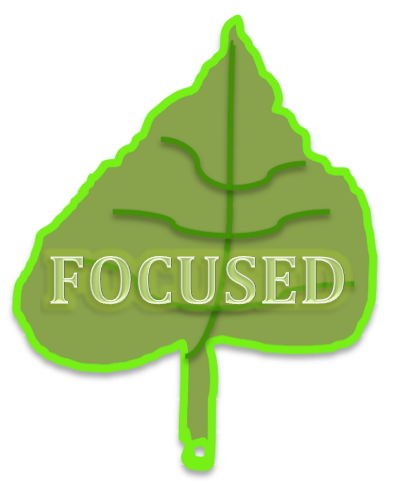 Put a leaf in your course
Put a leaf in your course 
The purpose of the GREENING THE CURRICULUM @ NMSU databases are for AASHE STARS reporting and to accomplish the New Mexico State University’s President’s Performance Fund Agreement. The Sustinability Council in 2013 reviewed the research themes and topics and determined whether courses met the following definition of Sustainability courses.
Sustainability Definitions for Curriculum:
Sustainable Development meets the needs of the present without compromising the ability of future generations to meet their own needs. Sustainability in the curriculum encourages students to make connections between the knowledge and skills addressed in traditional, discipline-based course offerings with their applications by practitioners, policy makers, and consumers to help create a sustainably configured economy, society, and environment. Sustainability curriculum provides students with the background and skills necessary to address problems related to energy, the environment, culture and society, and economic development as interdependent and interconnected processes that transcend individual disciplines.
The next step in the 2014 President's Performance Fund Agreement for GREENING THE CURRICUM project is to have the Coordinator, David Boje go to each college and department on campus and review the course offering in sustainability, develop three tracks for the Sustainaiblity Minor for undergraduates, and a Certificate Program for Graduates.
 Sustainability-focused courses concentrate on the concept of sustainability, including its socio-cultural, economic, and environmental dimensions, or examine an issue or topic using sustainability as a lens. To be considered sustainability-focused, the course should include three or more of the sustainability educational objectives listed below, and put the leaf above in your course materials.
Sustainability-focused courses concentrate on the concept of sustainability, including its socio-cultural, economic, and environmental dimensions, or examine an issue or topic using sustainability as a lens. To be considered sustainability-focused, the course should include three or more of the sustainability educational objectives listed below, and put the leaf above in your course materials.
 Sustainability-related courses incorporate sustainability as a distinct course component or module, or concentrate on a single sustainability principle or issue. To be considered sustainability-related, a course should include one or more of the sustainability educational objectives listed below, and please put the leaf in your department and course materials. Thank you.
Sustainability-related courses incorporate sustainability as a distinct course component or module, or concentrate on a single sustainability principle or issue. To be considered sustainability-related, a course should include one or more of the sustainability educational objectives listed below, and please put the leaf in your department and course materials. Thank you.
Sustainability Educational Objectives:
In order to determine whether or not a course has this goal in mind, it is useful to ask whether or not a given course will help students to achieve one or more of the following:
1. Understand and be able to effectively communicate the concept of sustainability.
2. Develop and use an ethical perspective in which they explain how sustainability relates to their lives and values, and how their actions impact issues of sustainability.
3. Become aware of and explain how economy, society, culture, energy, and the environment are interrelated, making connections between their chosen course of study and sustainability.
4. Develop technical skills or expertise necessary to implement sustainable solutions.
5. Explain the ways in which sustainable thinking and decision-making contributes to the process of creating solutions for current and emerging social, environmental, and economic crises.
6. Apply concepts of sustainability locally (e.g. to change daily habits and consumption patterns) and globally by engaging in the challenges and solutions of sustainability in a world context.
7. Synthesize understanding of the interconnections among social, cultural, economic, energy, and environmental systems and reason holistically.
ADDITIONAL INFO:
Sustainably-focused and Sustainability-related classes typically include one or more of the following topics:
1. Technical: learning processes for sustainable actions (e.g., analytical tools, practical training, experimentation with energy systems and materials).
2. Cultural and Human Ecology: learning about cultures around the world and connecting globally to benefit societies around the world (e.g., ethics; family systems and community organizations and their relationship to food production, water issues, and and sustainable use of renewable and nonrenewable cultural and natural resources).
3. Management: learning management skills related to sustainability (e.g., leadership skills, innovative technology and systems thinking)
4. Integration of multiple skills: using interdisciplinary skills learned from various departments across the college (e.g., integrating natural and social sciences, analytical methods, and critical reasoning skills to evaluate renewable and nonrenewable resource issues)
5. Economics and Sustainable Development: all layers of sustainability must include the economics of keeping environmental systems alive ( e.g., theoretical environmental, ecological, and natural resource economics that teaches students cost-benefit and financial analysis including environmental impacts and issues in the analysis).
6. Biological and Environmental Systems (e.g., development of models that explain maintenance and loss of biodiversity and using that knowledge for sustainable management and conservation).
To Update your Entry in a Database, Make a New one, or schedule a depatment or college faculty meeting, please contact:David Boje![]()